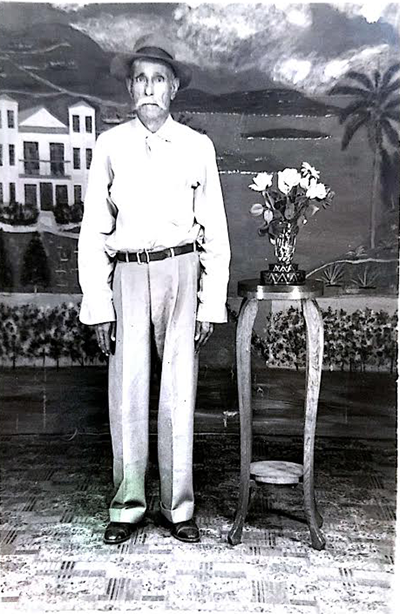 To mark the 172nd year of Indian arrival in Trinidad, I am pleased to share this story with you. It appeared in the Trinidad Guardian. In central Trinidad, covered in tangled vines, towering trees and green vegetation as far as the eye can see, one can find the evidence of a once thriving cocoa, coffee and citrus industry. The rotting boards and rusted galvanise of former barracks, which once housed plantation workers, indentured labourers and former slaves alike, are slowly deteriorating into nothingness, an erasure of a history which crafted the national identity of T&T. Driving through the road, which connects the bustling borough of Chaguanas to sleepy Tabaquite, one comes to a junction and the only landmark is a bar with few patrons. The junction is Massa Junction, and if an adventurous soul takes the road on the right, they will come upon Massa Nature Park, which stands out in an area not known for entertainment. The nature park was opened in 2014 by Johnny Hardial and many of its customers tend to stumble upon it while driving through country roads. The park features swimming pools, a pond filled with fish, a small bar area and an owner who is only too happy to share the story of its origin. In 1917, just before East Indian indentureship ended, Ishwar Hardial boarded a boat full of other labourers headed to the West Indies. His destination was to be Trinidad, a place he had never seen, but where he hoped to earn a living through the indentureship contract he had signed. In Trinidad, he ended up in the minimally populated village of Brasso where he worked on estates full of cocoa, coffee, citrus and bananas. It was there that Ishwar met his wife and fathered 14 children. It was also there that Ishwar created a legacy of kindness and generosity that he passed down to his children and which made him well known in the community. After his contract ended, like many of his jihaji, Ishwar had the option of returning to India or getting land from the government and making a life in Trinidad. Later, he would tell his children that he did not want to go home to Bihar, though he hardly ever spoke of his home. He was adamant that Trinidad was his home and began cultivating the land he had received as payment for his services. He hired workers from the Brasso community to work on his land, cultivating citrus and coffee. “He wasn’t educated because he never went to secondary school,” recalls Ishwar’s son Johnny. “He used to sit under the mango tree and though he only really knew Hindi well, in the little English he knew he would tell us stories of his life here. “He had a mule cart and he would go on the mule cart and sell rice and oil. He had shops and he used to help a lot of people. Anybody had a wedding, they used to help and his jahajis who came on the boat with him, if they were sick he would help them, if they had no food he would help them and then his generosity spread to all the village.” Johnny remembers his father’s generosity to his neighbours. “There was nothing like Indian or African, if someone was building a house, everybody would build the house, and all the ladies would come and cook. “Whether it is East Indian, African or what, we would go into each other’s houses. It still happens in the country but it doesn’t happen in the town.” His father, who was nicknamed Massa because he employed many of the villagers, taught his children through example that it was important to give to those who needed. “In those days, if we go to school and somebody came without food, my father would encourage us to share food with the other children. “People don’t give now. Nobody starved in those days, everybody was giving. Now you can be next door and your neighbour starving and you wouldn’t know or care.” Johnny, who migrated when he was 19, came back to Trinidad four years ago and was horrified at the state of the former estates. “My father came here and worked hard and built something and my parents died and there was nothing to show this was where he used to live or this is what he left behind. “I sat down and thought about how he educated me, gave me all of this and I had nothing to commemorate his impact on the community, not even a bench.” The senior Hardial, Ishwar, died one year before Independence in 1961 after coming to Trinidad on a boat, moving out from the barracks where he lived, purchasing five acres of land and then buying more. “When I came back to Trinidad, the land was overgrown in bush and bamboo. It used to be cocoa, coffee, citrus bananas. It was a prospering estate. The trees were getting old. The idea of the nature park was to build this in their memory and to share a little about him with the people who come here.” For Johnny, his father arrived an Indian but died a Trinidadian who loved this country and what he had accomplished here. Source: Trinidad Guardian
1 Comment
Judy Mohammed
9/3/2023 10:33:52 pm
Judy, cousin of Johnny. Yes, our ancestors were hardworking, generous and everyone was each others brother or sister. Life was beautiful,,wish it stayed that way.
Reply
Leave a Reply. |
T&T news blogThe intent of this blog is to bring some news from home and other fun items. If you enjoy what you read, please leave us a comment.. Archives
June 2025
Categories
All
|

 RSS Feed
RSS Feed